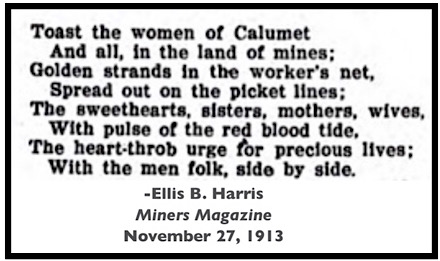 —————
—————
Hellraisers Journal – Tuesday February 24, 1914
Hancock, Michigan – Deputized Company Gunthugs Brutalize Women
From the Detroit Evening Times of February 17, 1914:
From the Duluth Labor World of February 21, 1914:
BERGER TESTIFIES AT STRIKE INQUIRY
———-
Says Socialist Party Had Nothing to Do With Strike
Simply Contributed Money
———-Victor Berger appeared before the congressional committee at Hancock [Michigan] Tuesday to tell what he knew about the copper strike. Mr. Berger appeared as a committee witness. He was not called by the Western Federation of Miners. He declared the Socialist party had nothing to do with calling the strike and nothing to do with fomenting it. “When the strikers got hard up” he said, “the Socialists gave them financial aid up to $25,000 in money and a greater quantity of clothing.”
Mr. Berger said the national flag of the Socialists was the Star Spangled Banner, but “the red flag is our international flag-the red flag of brotherhood.”
Women Were Assaulted.
The committee listened to a large number of women witnesses during the week. One woman said she was hit in the back by a rock thrown by a gunman. She was afterwards arrested and was taken to jail in an automobile carrying her 4-months-old baby with her. The baby died from exposure from the cold a few days later. She has not been able to find out why she was arrested…..
The woman whose baby died was Margaret Cibacca. Her testimony, describing how she was taken into custody along with her children and then dumped out into the cold, is disturbing. Mrs. Cibacca the wife of a striking copper miner, was at home with her five children, ages 3 months to six years, when the deputies came pounding at her door. They told her that they wanted her to come to the mining office to visit a sick woman.
She gathered up her five children and went with them in their automobile to the mining office of the Baltic Mine. They forced her to leave the three older children outside in the cold with only the six-year-old to watch them. The two littlest ones, they allowed her to take inside. Once they had her in the office, they locked the door. She was alone in there with three deputies. There was no sick woman.
She asked why she was there, what she had done, and they laughed at her and beat her, even as she held her little children. She begged them to let her go home and feed her children, and they laughed at her again and began to beat her with a club on her side and on her back as she attempted to ward off the blows and protect her tiny children. The bruises can still be seen on her back.
Finally, they forced her with her children into the automobile for the drive to Houghton to see Justice Little. On the way they told her that she would be locked up for six months. Justice Little questioned her for about a half hour and then told her she was free to go, but go where? There was no ride back to Baltic, eight miles away, the deputies were gone, and she had no money.
At last, her husband was able to come for her. He brought blankets for the children who were cold to the bone, especially the three-month-old baby, from waiting outside for their father. They were too late for the train back to Baltic, and the striking miner was forced to spend his meager strike benefit on a rented automobile to take his tired, hungry, and terrified family home.
The baby came down deathly ill the next day, and died shortly thereafter.

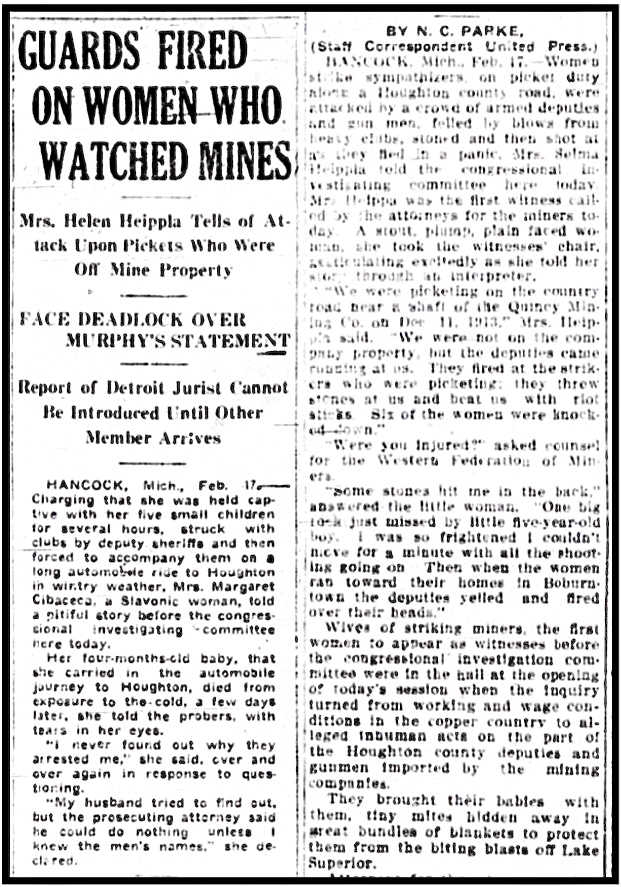
 —————
—————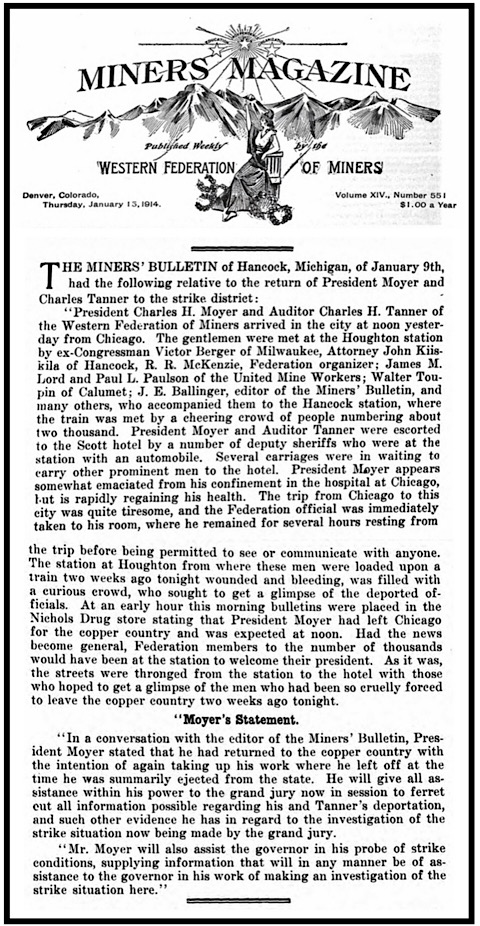
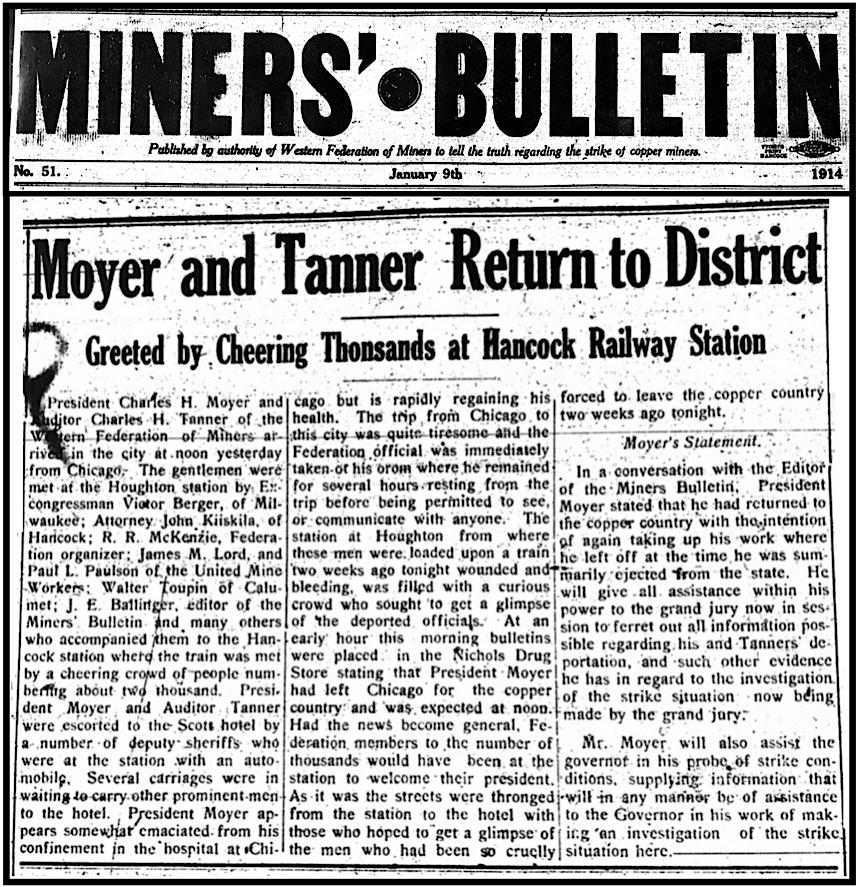
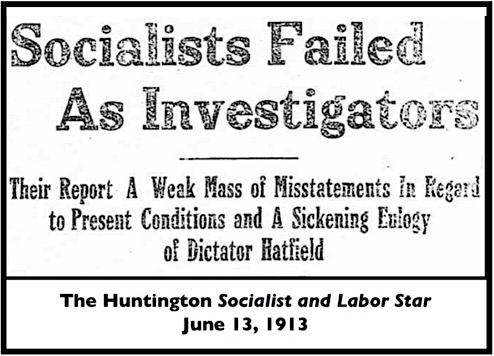 —————-
—————-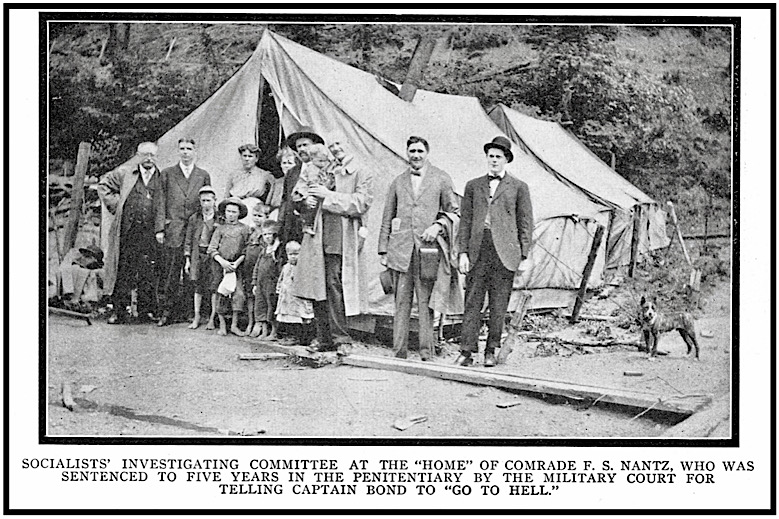
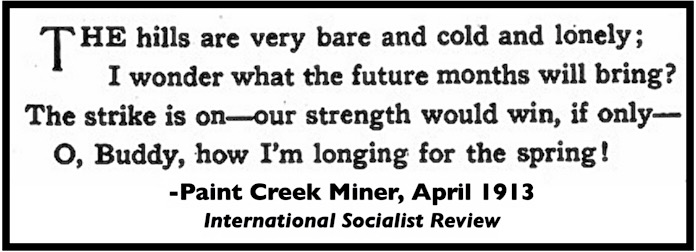 —————
—————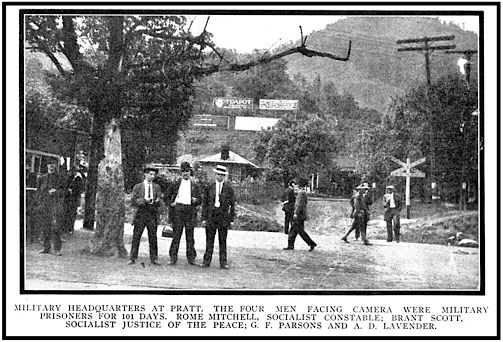
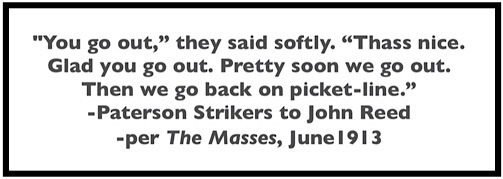 —————
—————
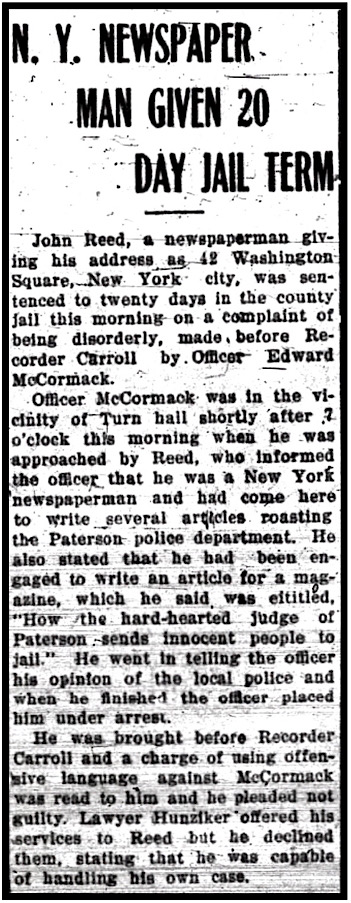
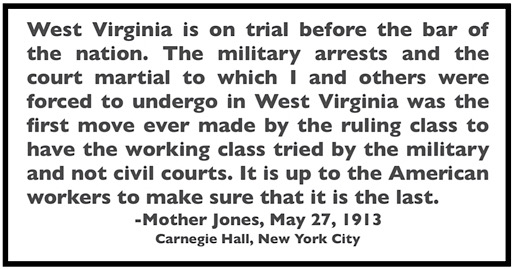 —————
—————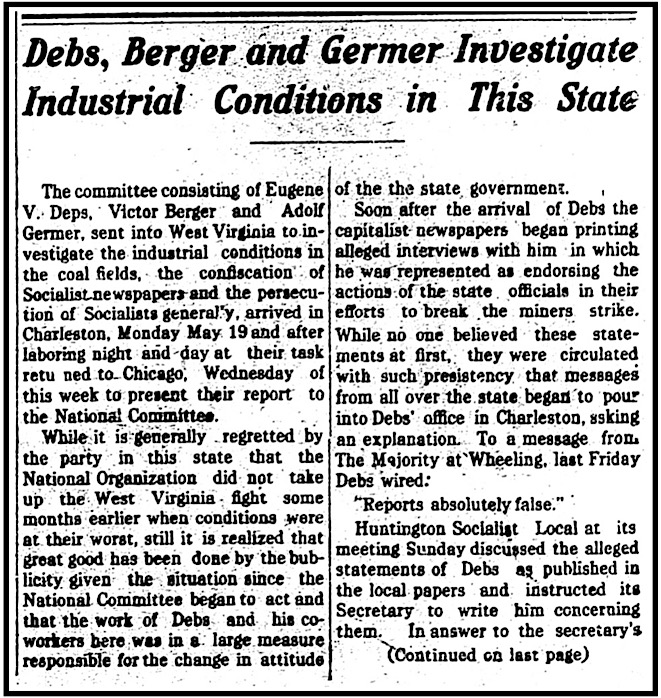
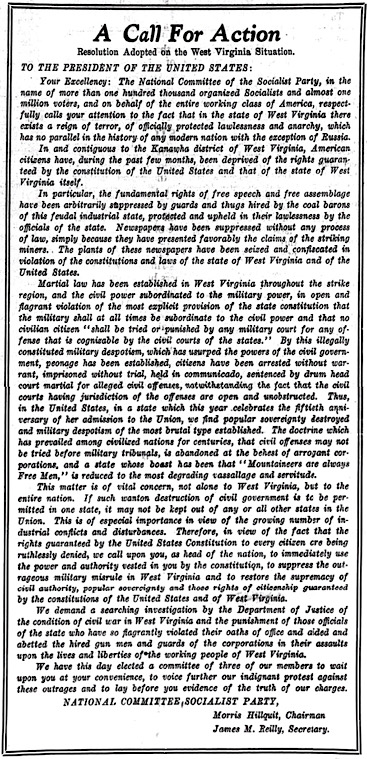
 —————
—————
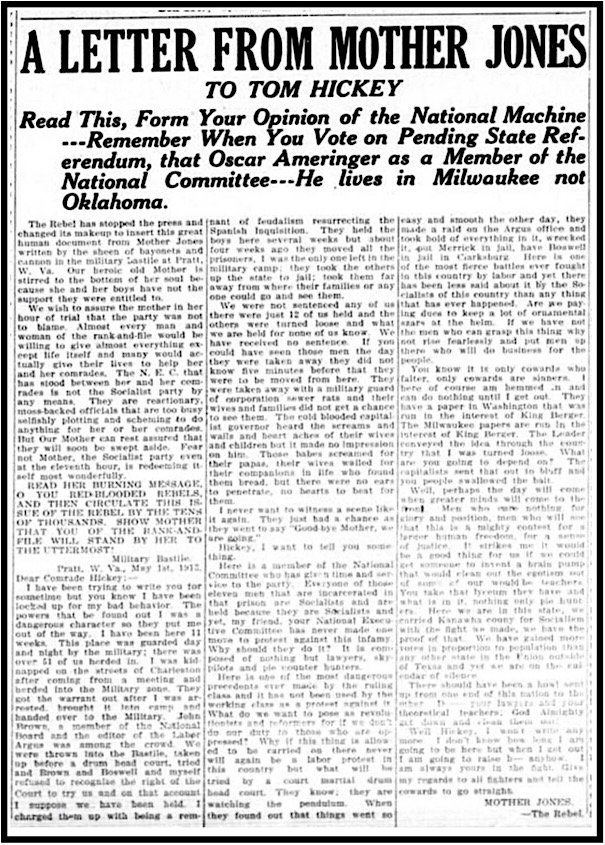
 —————
—————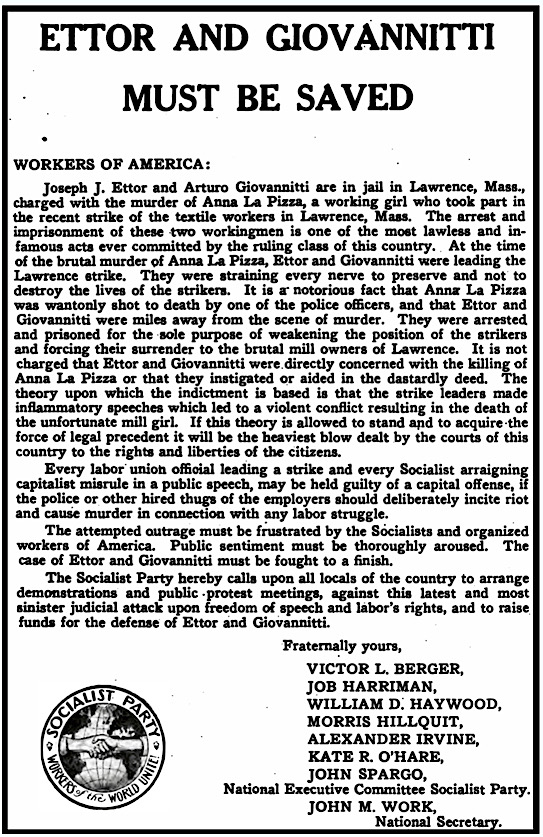
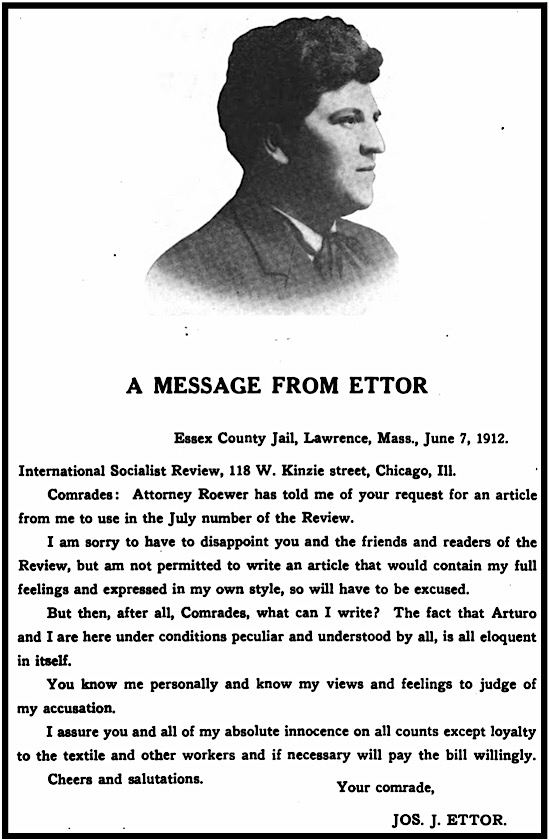
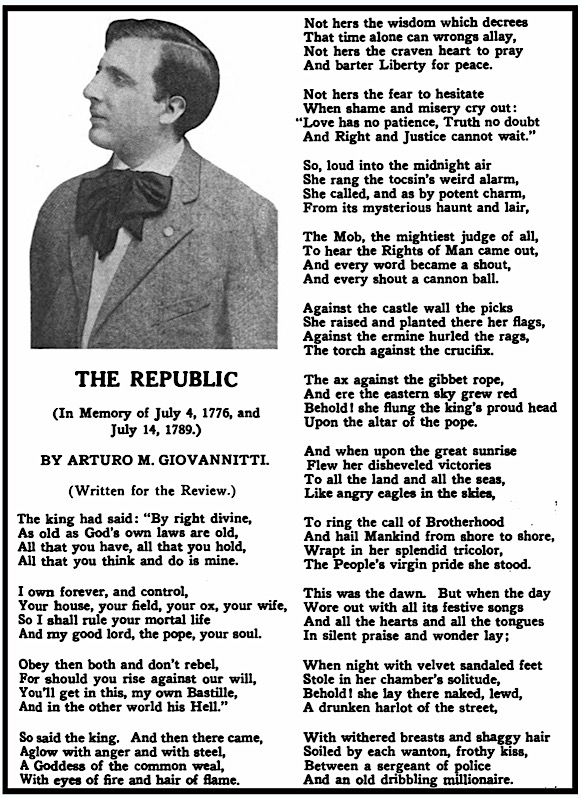
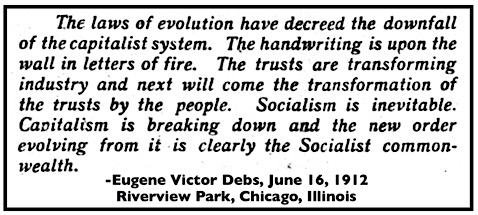 —————
—————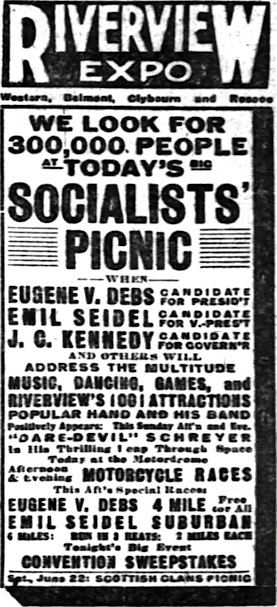 The national convention of the Socialist Party recently held at Indianapolis was in all respects the greatest gathering of representative socialists ever held in the United States. The delegates there assembled demonstrated their capacity to deal efficiently with all the vital problems which confront the party. The convention was permeated in every fiber with the class-conscious, revolutionary spirit and was thoroughly representative of the working class. Every question that came before that body was considered and disposed of in accordance with the principles and program of the international movement and on the basis of its relation to and effect upon the working class.
The national convention of the Socialist Party recently held at Indianapolis was in all respects the greatest gathering of representative socialists ever held in the United States. The delegates there assembled demonstrated their capacity to deal efficiently with all the vital problems which confront the party. The convention was permeated in every fiber with the class-conscious, revolutionary spirit and was thoroughly representative of the working class. Every question that came before that body was considered and disposed of in accordance with the principles and program of the international movement and on the basis of its relation to and effect upon the working class. —————-
—————-